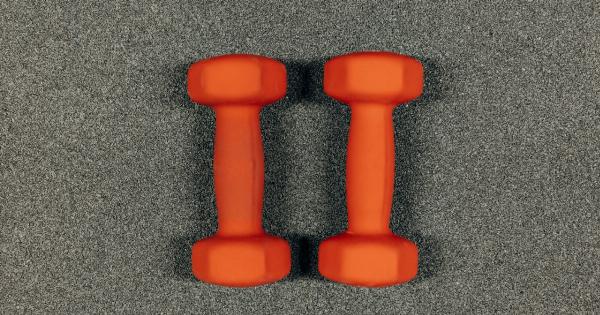Protein is an essential macronutrient that plays a crucial role in supporting numerous bodily functions. It is responsible for building and repairing tissues, producing enzymes and hormones, and maintaining a healthy immune system.
While protein is an important part of a balanced diet, consuming too much can have negative effects on your health. In this article, we will explore the signs that you may be eating too much protein and provide tips on how to maintain a healthy intake.
What is the recommended daily protein intake?
The recommended daily protein intake varies depending on factors such as age, sex, activity level, and overall health.
The generally accepted guideline for protein intake is to consume 0.36 grams of protein per pound of body weight, or 0.8 grams of protein per kilogram. For example, a sedentary adult weighing 150 pounds would aim for around 54 grams of protein per day.
However, individuals with higher activity levels, such as athletes or those trying to build muscle, may require increased protein intake to support their training regimen.
In these cases, the protein requirement may range from 0.5 to 0.9 grams per pound of body weight.
Signs of excessive protein consumption
While protein is important for optimal health, consuming too much can lead to several signs and symptoms that indicate an excessive intake:.
1. Digestive issues
One of the most common signs of excessive protein consumption is digestive discomfort. Consuming large amounts of protein can overload the digestive system, leading to symptoms such as bloating, gas, and constipation.
This is because protein requires specific enzymes for digestion, and excessive amounts can overwhelm the digestive process.
2. Dehydration
Consuming high amounts of protein can put a strain on the kidneys, as they are responsible for filtering waste products from protein metabolism. This increased workload can lead to dehydration.
Additionally, protein metabolism produces urea, a waste product that requires water to be eliminated from the body. Therefore, excessive protein intake can increase the body’s water needs, potentially leading to dehydration if not adequately addressed.
3. Weight gain
Although protein is less likely to be stored as body fat compared to carbohydrates or fats, excessive protein consumption can still contribute to weight gain.
Protein contains calories, and consuming more protein than your body needs can result in an excess calorie intake. These excess calories can eventually be stored as body fat, leading to weight gain.
4. Kidney issues
As mentioned earlier, the kidneys play a vital role in processing protein waste products. Consistently consuming excessive amounts of protein can put a strain on the kidneys, increasing the risk of developing kidney issues over time.
This is particularly relevant for individuals with existing kidney problems or compromised kidney function.
5. Nutrient imbalances
When focusing solely on consuming high amounts of protein, individuals may neglect other essential nutrients found in a balanced diet. This can lead to nutrient imbalances and deficiencies.
For example, individuals focused on consuming protein-rich foods may inadvertently consume insufficient amounts of fiber, vitamins, and minerals usually found in fruits, vegetables, and whole grains.
6. Bad breath
Consuming excessive protein can lead to bad breath, commonly known as “protein breath”. This is a result of the body breaking down protein into ammonia and other nitrogenous compounds.
When these compounds are eliminated through the breath, they can cause an unpleasant odor.
7. Increased appetite
Protein is known to have a satiating effect, helping to control hunger and prevent overeating. However, consuming excessive amounts of protein can paradoxically lead to increased appetite.
This is because of the high thermic effect of protein, which means that a significant portion of the calories from protein is burned during digestion. When consumed in excess, the body may compensate by increasing appetite to meet its energy needs.
8. Bone density issues
While protein is necessary for maintaining healthy bones, consuming excessive protein without an adequate intake of other bone-supporting nutrients such as calcium and vitamin D can have a negative impact on bone density.
High-protein diets that neglect these other essential nutrients may increase the risk of osteoporosis and bone fractures.
9. Disrupted sleep
Consuming too much protein, especially close to bedtime, can disrupt sleep patterns. Protein-rich foods require more digestion time and can cause discomfort when consumed too close to sleep.
Additionally, consuming excessive protein can result in an overproduction of amino acids, which can interfere with sleep-inducing neurotransmitters such as serotonin.
10. Long-term health implications
Consistently consuming excessive amounts of protein can have long-term health implications. Some studies have linked high-protein diets to an increased risk of chronic diseases such as heart disease, certain types of cancer, and kidney damage.
It is important to maintain a balanced and varied diet to ensure all nutrient needs are met without overdoing any particular macronutrient.
Tips to maintain a healthy protein intake
Now that you are aware of the signs that indicate excessive protein consumption, here are some tips to help you maintain a healthy protein intake:.
1. Determine your protein needs
Calculate your protein needs based on your age, sex, body weight, activity level, and overall health. Aim to meet the recommended daily intake rather than exceeding it.
2. Opt for lean protein sources
Choose lean sources of protein such as skinless poultry, fish, legumes, and low-fat dairy products. These options are generally lower in calories and saturated fat compared to high-fat animal sources like red meat.
3. Balance your meals
Ensure your meals contain a balance of carbohydrates, protein, and healthy fats. By incorporating a variety of nutrient-dense foods into your diet, you can meet your protein needs while also providing your body with other essential nutrients.
4. Pay attention to portion sizes
Be mindful of portion sizes when consuming protein-rich foods. Use measuring tools or the palm of your hand as a general guideline for appropriate portion sizes.
5. Emphasize whole foods
Focus on consuming whole foods rather than relying solely on processed protein supplements. Whole foods provide a wider array of nutrients and are generally more satisfying.
6. Spread protein intake throughout the day
Distribute your protein intake evenly throughout the day rather than consuming most of it in one meal. This ensures a steady supply of amino acids for tissue repair and other bodily functions.
7. Stay hydrated
Since high protein intake can increase the body’s water needs, it is essential to stay hydrated. Aim to drink enough water throughout the day to support kidney function and prevent dehydration.
8. Consult a healthcare professional
If you are unsure about your protein needs or suspect that you may be consuming too much, it is always advisable to consult a healthcare professional or registered dietitian.
They can assess your specific situation and provide personalized recommendations.





























